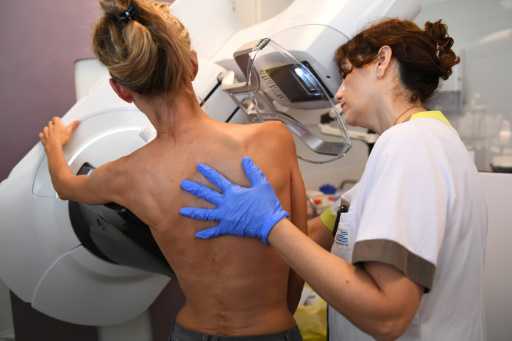Cancer in Europe: More cases but fewer deaths
17 September, 2018

The number of cancer cases has continued to rise across Europe, however mortality rates from the disease have fallen, according to the World Health Organization's "European Health Report."
Some 2.4 percent of people living in the 53 countries constituting the WHO's "Europe region" had cancer in 2014, a 50 percent increase since 2000, although the figure conceals significant disparities in cancer type and region.
In the Nordic countries of Sweden, Norway, Finland, Denmark and Iceland, the prevalence of cancer is twice as high at five percent, while it is only 1.8 percent in the 10 post-Soviet states that comprise the CIS (Commonwealth of Independent States), which includes Belarus, Georgia and Russia.
The 2013 figure in the European Union was 2.8 percent, with a slightly higher prevalence for women (2.9 percent) than for men (2.7 percent).
New breast cancer cases increased by 30 percent between 2000 and 2014, when 110 new cases were reported per every 100,000 women.
The rise is constant throughout the region, with the Nordic countries recording the most new cases with 175 per 100,000 women in 2014.
Although breast cancer has become more common, it has also been better treated.
Death rates from the disease have steadily decreased in the region since the late 1990s, reaching 20 deaths per 100,000 women in 2015 (21.4 in the EU), compared to 23.8 in 2000 (26.8 in the EU).
Cases of cervical cancer have varied from country to country over time.
Rates declined slowly in the EU (12 per 100,000 women in 2014, a 12.5 percent fall since 2000), while steadily increasing in the CIS (17.8 per 100,000 in 2014, a 23 percent rise since 2000).
Cervical cancer death rates have halved in the EU since the 1970s, with three deaths per 100,000 women in 2015.
Mortality rates in the CIS are more than twice as high, with 6.9 deaths per 100,000 women in 2014, which is unchanged since 1990.
Incidences of tracheal, bronchial and lung cancers have also varied across the region.
Rates increased by almost 50 percent in France between 2000 and 2015 (from 47 to 70 cases per 100,000 people), much faster than the 11 percent rise recorded across the rest of the EU.
The average for the whole of the "Europe region" stood at 49 cases per 100,000 inhabitants in 2014.
Mortality rates from these cancers are decreasing across the region, with a 13 percent fall since 2000, although there are several exceptions.
The rate in France fell only two percent since 2000, with 34.6 deaths recorded per 100,000 inhabitants in 2014, and increased in Portugal by 10 percent over the same period.
